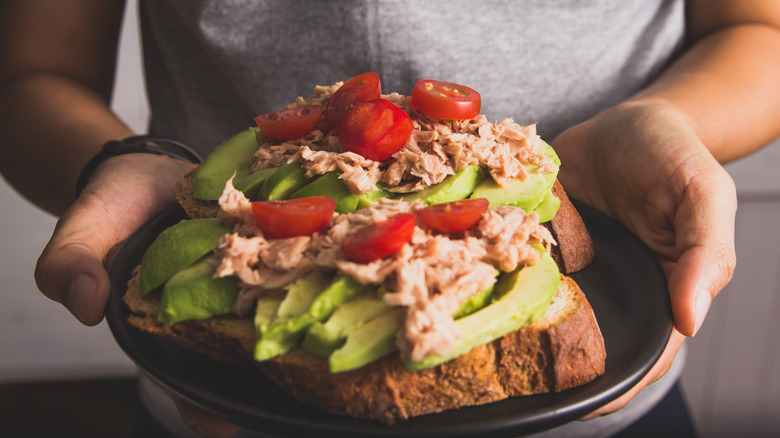
Everyone’s weight loss journey is unique, and it can be challenging not to be distracted by fad diets. Many of these diets are not only dangerous but also lack the balance required for sustainable weight loss. Thus, you might be doubtful when you hear that canned tuna can aid in weight loss.
Tuna, a common ocean fish, is readily available in grocery store aisles. It has a flaky, distinctive taste that enhances the flavor of salads and sandwiches. Besides being inexpensive, it is low in calories and contains various vitamins. You’ll also find different types of tuna on the shelves, such as light tuna or albacore, each with its own unique texture. Tuna is rich in protein, offering numerous weight-loss benefits. It’s also convenient for those on the go, as you only need to open the can to enjoy its benefits.
Gain an in-depth understanding of how canned tuna can assist in your weight loss journey. This can help you appreciate the importance of selecting the right canned tuna and be aware of its potential risks.
Eating tuna for weight loss

There are many different fad diets that might be more detrimental to your health than you realize, such as the tuna diet. While it’s important to avoid diets that limit your meals and nutrition (unless guided by your healthcare provider), incorporating canned tuna into your meal plan can be beneficial if you’re seeking a new option.
One of the great aspects of tuna is its ability to pack a lot of flavor into few calories. A five-ounce can of tuna in water contains 120 calories, according to Chicken of the Sea. It’s also rich in protein, offering 30 grams per the same container. Adding it to a salad can enhance both the flavor and protein content. High-protein diets help you feel full and manage your appetite, according to a 2014 study in the Nutrition Journal. Protein not only keeps you satiated but also aids in building lean muscle. Feeling full and having leaner muscle means shedding unwanted fat. Additionally, tuna is packed with nutrients like B12 and polyunsaturated fatty acids, which are beneficial for anemia and heart health.
Given the leanness of the meat and its robust flavor, tuna adds diversity and enjoyment to your diet plan. However, overconsumption of tuna can lead to side effects you should be aware of.
Possible downside to eating too much tuna

Tuna is an excellent superfood to aid in achieving your weight-loss goals. However, that doesn’t mean you should include tuna in every meal. Moderation is key to any effective weight loss program, and this includes incorporating tuna into your diet. Overindulgence can lead to quickly tiring of it.
Tuna also presents another caveat: mercury. Because it comes from oceans increasingly polluted by humans, tuna can be contaminated with varying amounts of mercury, according to Healthline. In moderation, small levels of mercury aren’t likely to cause effects, but excessive consumption can lead to fatigue and other symptoms. The mercury content varies with the size of the fish, so it’s advisable to stick to smaller tuna species, like light tuna and skipjack, and avoid albacore tuna when concerned about mercury.
While it’s not advisable to consume tuna with every meal, it is a delicious lean meat high in protein that can help you lose inches. It’s also rich in vitamins to keep your body content.




